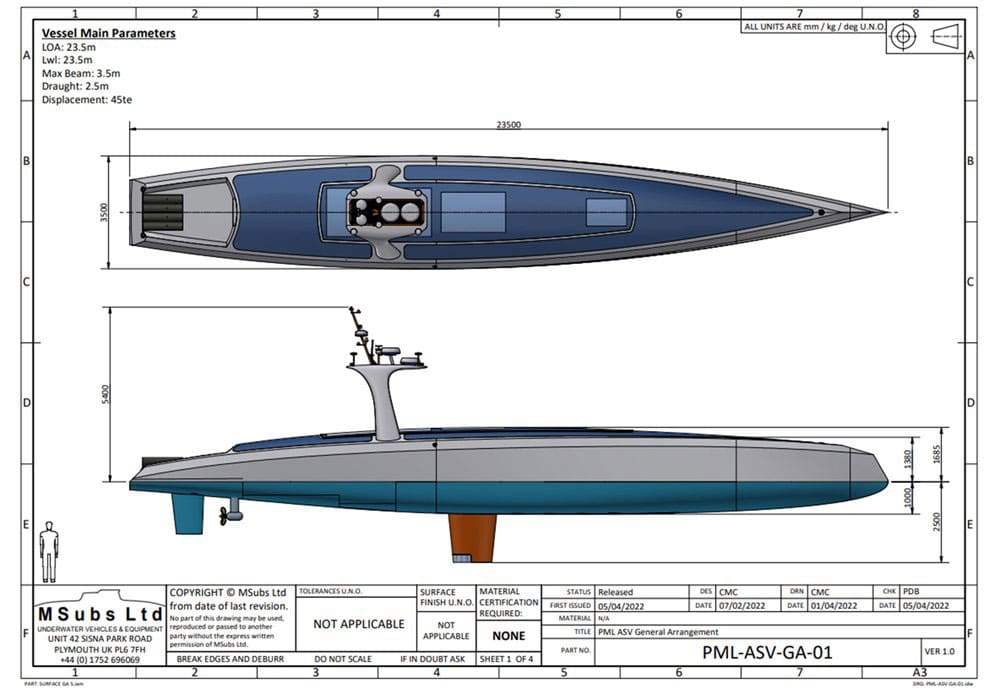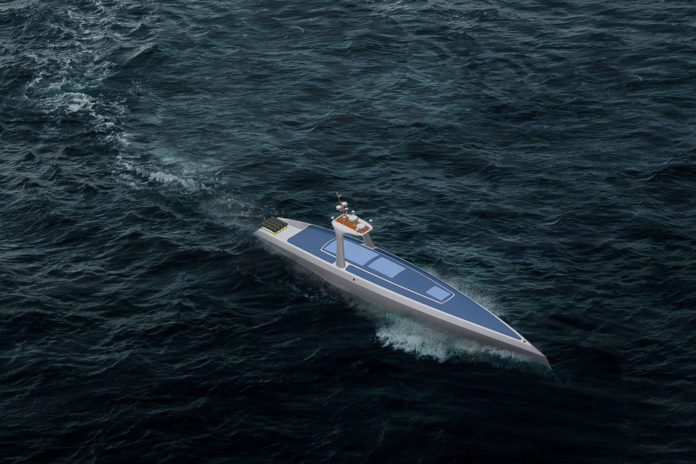Britain’s Plymouth Marine Laboratory (PML) has revealed designs for the world’s first long-range autonomous research vessel that would usher in a new era for net-zero oceanography and advanced international marine research. PML commissioned Plymouth-based M Subs Ltd to design and build the sleek, futuristic-looking, and fully unmanned ‘Oceanus,’ supported by seed funding from the Natural Environment Research Council (NERC).
The project was inspired by an IBM-backed Mayflower Autonomous Ship, also developed and built in Plymouth by M Subs Ltd. In fact, the Oceanus takes its name from the first child to be born on the original Mayflower in 1620.
The Oceanus vessel has been designed as a self-righting, lightweight, mono-hulled autonomous vessel capable of carrying an array of monitoring sensors to collect data for research into critical areas such as climate change, biodiversity, fisheries, and biogeochemistry. The vessel will measure 23.5 meters long and 3.5 meters wide and will be propelled by two rear-mounted pod drive motors. While a fuel-efficient diesel engine will still feature, it will be complemented by onboard micro-energy generation devices and solar panels on the deck.

At times, in situ sampling will still be needed to validate the autonomously collected data and perform more complex monitoring and experiments that require proximity to the sample sources. However, autonomy on this scale will allow for radically more responsive and more frequent data collections at a wider range than currently possible, helping to plug any gaps in datasets and greatly improve marine modeling.
Oceanus is designed primarily to make the transatlantic sampling voyage from the UK to the Falklands. The vessel will carry an advanced scientific payload and use the latest AI technology to help navigate the best course to its target location, with real-time input from weather forecasts and other marine data feeds.
“It’s a privilege to work with the team at M Subs Ltd and PML and aid in the design, construction, and operation of the novel, autonomous ships that will add significantly to the corpus of knowledge about our Ocean and the planet in general,” said Brett A Phaneuf, Managing Director, M Subs Ltd. “The voyages of exploration the RV Oceanus will undertake are matched in intensity by the parallel technological voyage to bring into being a new era in climate science – at lower fiscal and ecological cost.”
